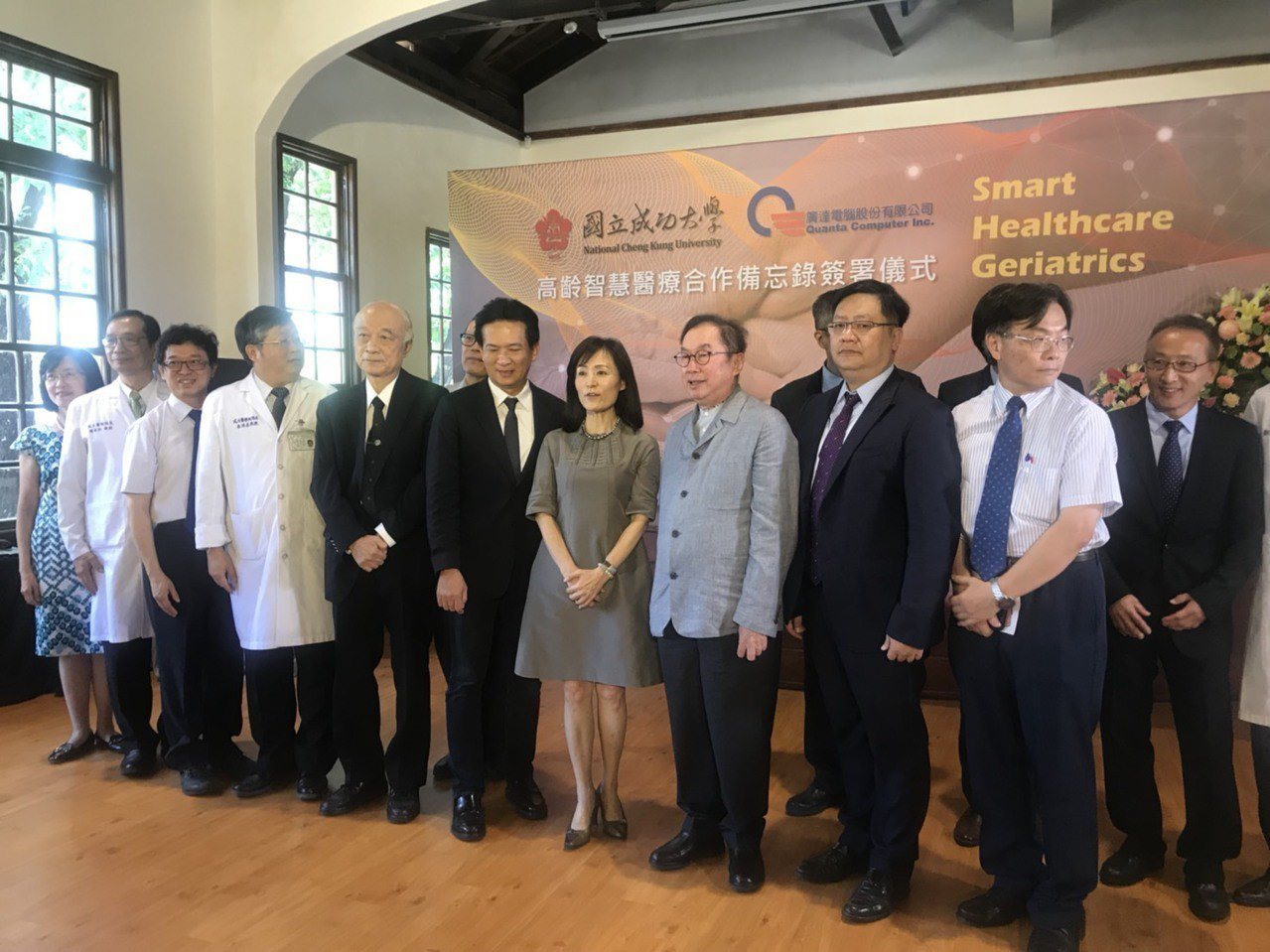NCKU Works with Quanta Computer to Develop Smart Healthcare and Create Hospitals without Walls

NCKU Works with Quanta Computer to Develop Smart Healthcare and Create Hospitals without Walls
Modern medicine in Taiwan began with the church in the late Qing Dynasty and the early Republic of China. A century ago, the Japanese army set up a military hospital in Tainan, which lay down the foundation for two major healthcare systems, one in the north and the other in the south. The Army 804 General Hospital, which is now the NCKU’s Department of Taiwanese Literature today, was in fact the Tainan Garrison Hospital that the armed forces of the Republic of China inherited from the Japanese army at the end of the Japanese colonial period. Despite the passing of time, the architecture has been carefully preserved, and NCKU’s medical center continues to write new articles on medical developments in Taiwan associated to the site. In the 21st century, NCKU’s medical center will build the world’s first geriatrics hospital and incorporate smart technology to create a hospital without walls. On September 3, NCKU and Quanta Computer signed a Smart Healthcare Geriatrics Collaboration Memorandum, agreeing to use technologies such as artificial intelligence (AI) and the Internet of Things to co-develop patient-centered medical and healthcare services and build an indicative smart geriatrics hospital.
In 2018, the proportion of individuals over the age of 65 in Taiwan reached 14%, officially making Taiwan an aged society. Elderly individuals often suffer multiple diseases, but the symptoms may be mild and atypical and the diseases progress quickly but only displaying slight changes. Geriatric healthcare not only requires integrated healthcare including prevention, treatment, and rehabilitation but also means more challenges for healthcare personnel.
Quanta Computer has been incorporating AI applications and services into the healthcare industry in recent years. NCKU’s medical center boasts quality healthcare personnel and abundant clinical experience and is a leading example in healthcare for acute, severe, difficult, and rare diseases. In the collaboration between the two parties, NCKU will provide quality venues for clinical tests and offer assistance in medical research so that Quanta can optimize relevant products and technologies. With the incorporation of smart technologies, NCKU will be able to shift from disease-oriented healthcare models to patient-centered healthcare models. The reciprocities of their collaboration will greatly benefit patients and their families.
NCKU President Dr. Huey-Jen Jenny Su indicated in her speech that the signing of the memorandum with Quanta Computer expresses their determination to take on the challenges of the new era and their promise to the future. NCKU will gather its strength to develop new smart geriatric healthcare for Taiwan and the world. NCKU’s mission is not only to enhance healthcare quality but to reinforce aspects such as the environment, energy, and management so as to serve a wider scope of elderly individuals. In addition to providing high-quality healthcare services, patients can continue to receive good healthcare when they return to their communities due to advances in smart technologies. The realization of this ideal will require the efforts of the hospital, the medical college, and other colleges as well. With pride, NCKU declares that smart geriatric hospitals will meet social expectations and allow the industry to prosper.
Chairman Barry Lam of Quanta Computer pointed out that the site of the signing ceremony used to be a hospital and that they probably never would have predicted that technology companies would be able to participate in healthcare services a hundred years later. AI will play a crucial role in the future changes in the world, so it is not too much to call it an AI revolution. NCKU will introduce smart technologies into their geriatric hospital and create an indicative hospital based in Taiwan but expanding into the world, and Quanta Computer is sure to participate in this. The merge of AI and information and communications technologies will facilitate the development of precision medicine, help doctors perform more tasks, increase healthcare quality, and benefit even more people.
Deputy Superintendent of National Cheng Kung University Hospital, Meng-Ru Shen, MD&PhD, stated that one of the objectives of incorporating smart technologies into the geriatrics hospital is to help healthcare personnel increase healthcare quality, and another focus is to create a hospital without walls. The first priority of a hospital without walls is to bring together community pharmacists, community physicians, and public health nurses to construct technological community healthcare networks that connect inpatient care to follow-up care after discharge. In this way, hospital-based healthcare can be extended to communities.
Dean of the College of Medicine at NCKU, Jang-Yang Chang, indicated that smart healthcare services can create massive amounts of medical data, which is the foundation of developing enhanced precision medicine. AI calculations and analysis will provide the big data needed to propel precision medicine fields such as preventive medicine, predictive medicine, personalized medicine, and participatory medicine and to formulate customized treatment strategies for each patient. NCKU’s medical center will employ technology to create smart holistic care services.





